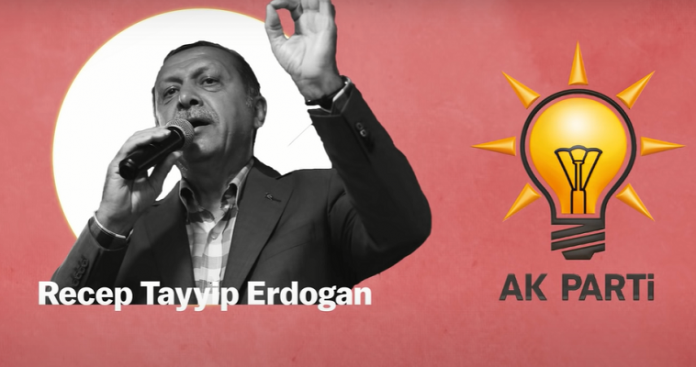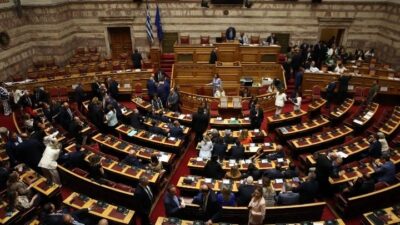Makis Andronopoulos: The New Eastern Question – A historic opportunity for an anti-Turkish front
01/09/2020
“For the past 200 years, Greece has been at the forefront of Europe’s evolution. In the 1820s, as it waged a war of independence against the Ottoman Empire, Greece became an early symbol of escape from the prison house of empire.”(article by British historian Mark Mazower, first published in 2011 in the New York Times).
It is unfortunate that the formation of an anti-Turkish front in the Arab world is taking place on the initiative of Israel, and not Greece. However, the dynamics of the front are impressive, as evidenced by Israel’s agreement with the United Arab Emirates and the deployment of F-16 Block 60 fighter jets by the UAE Air Force to the Souda base for joint exercises with Greece.
Under these circumstances, Greece had no reason to fall into the trap of the dialogue that Berlin was preparing for August 28. The condition set by the Greek Prime Minister concerning the departure of Oruc Reis was minor, pretentious, and was a kind of pre-announcement of the intention of a dangerous compromise with Turkish expansionism, and to be more precise national concessions. The alibi of dialogue and open lines of communication has exhausted its dynamics and seriousness.
Fortunately, the signing of the Greek-Egyptian agreement on the partial demarcation of the EEZ provoked the reaction of a greedy Turkey, which canceled the negotiations and sent the Oruc Reis south of Kastellorizo to a potential Greek EEZ. Athens must avoid negotiations with Ankara on the well-known Turkish terms, which Berlin is also trying to impose.
Reminiscent of Forrest Gump
Now, Mitsotakis has set as a condition for participating in such a dialogue, that the Turks stop their provocative actions and threatening war rhetoric. The term is legitimate, but it does not essentially answer the problem. The only thing that Greece has to negotiate with Turkey is an agreement to delimit the EEZ in terms of international law.
If the government proceeds in the absence of the Greek people to negotiate on Ankara’s expansionist claims, it will cause a major political problem and this will bring developments. Despite its dangers, the current situation is an opportunity for a long-term solution to the new Eastern Question, which has been created by neo-Ottoman Turkey with its aggressive expansion.
The great mobility shown by Greek diplomacy, however, is not in the right direction. To be precise, it reminds one of Forrest Gump, who ran aimlessly from coast-to-coast! The absence of a national strategy is obvious and dangerous. The only hidden hope is the not so probable possibility that Greece will participate, through secret diplomacy, in the project of forming an anti-Turkish front in the region.
We should not be worried about Erdogan’s revenge for the plight of the frigate “Kemal Reis” through the announcement of the conversion of the “Hora Monastery” into a mosque. What should worry Greece is the imminent delivery by the Germans of six “stealth” submarines to Turkey, a fact that is provocative for the timing of this move. The second thing Greece needs to worry about is the possible supply of new S-400 batteries from Russia. These two developments are dramatically dangerous.
Need for an anti-Turkish front
Greek rhetoric must harden considerably! We had suggested (since 2019) that whenever we want to say something about Turkey we should start with the following wording: “this country is under an authoritarian regime with 60,000 political prisoners and 10,000 citizens missing, it is an invader in Cyprus, in Iraq, and also finances and trains jihadists in Syria and Libya, while it has instrumentalized millions of refugees and therefore we believe that our partners and friends should deal with it with this information in mind.”
Moreover, “this is a country that aggressively violates international treaties because it seeks, not only the reconstruction of the Ottoman Empire through protectorates, but also the assumption of leadership of Sunni Islam, along with a nuclear Pakistan and sponsored by Qatar. It has already proposed the formation of an Islamic army against Israel, an Islamic dinar, and an Islamic development bank. Europeans need to realize that if Turkey manages to lead Sunni Islam, with Pakistan’s support, it will drown Europe in immigrants.
They also need to understand that further strengthening the Turkish war industry is not just aiding another competitor in arms exports (which can equip jihadists wherever it sees fit), but also a potential nuclear adversary. A Turkey that draws liquidity and capital from the energy resources of the Mediterranean will be unrestrained. In fact, a major geopolitical threat is rapidly emerging on the side of the European Union.”
Therefore, Greek diplomacy has an interest in leveraging the formation of an anti-Turkish front with a medium- to long-term strategy. It is on such conditions that Greek diplomatic doctrine must be built and the EU transgressors awakened from their geopolitical slumber. At the same time, a Greek possibility of mediation in Iran-Israel relations must emerge (although PM Mitsotakis may have “burned” this possibility) and on other “hot” fronts (Palestinian and Hezbollah).
Turkish imperium
Turkey is not a revisionist power, but a neo-imperialist state that has no respect for international treaties. Kemal had made claims for the Sandzak of Alexandretta (Iskenderun) which was part of French Syria and sought its annexation in 1935 when the mandate of the League of Nations would expire.
To achieve this Turkey invented an incredible theory about the “Hatay Theme”, which is of particular importance to us as an example of a method of promoting the Turkish imperium. It implied that this is the area of the ancient Hittites (obviously “ancestors” of the Turks!) that must belong to Turkey. With systematic settlements, it achieved its recognition as an autonomous state, integrated in Syria (1937). And after a referendum, Turkey annexed the area of Alexandretta(1939). Later we had the invasion of Cyprus, the disputes in the Aegean and now the aspirations throughout the Eastern Mediterranean with the doctrine of the “Blue Homeland”.
The ideology of neo-Ottomanism, as applied in practice by Erdogan, came to show that the independence of Greece and other countries that were under the rule of the Ottoman Empire did not definitively resolve the Eastern Question. Its total restoration is related to three aspects:
- First, to Turkey’s expansionist actions, which escalated under the Erdogan regime.
- Secondly, with the Middle East, on the one hand with the interventions of the West, on the other hand with the founding of Israel.
- Thirdly, with the internal issue of Asia Minor, a dominant, but not unique, aspect of which is Kurdish.
The new Eastern Question
In 1920 the population of Turkey was about 9.5 million, of which only 2.5 were Ottoman Turks and the rest, except Greeks, Armenians, and Kurds, were ancient peoples of Asia Minor, Kyrgyz, Uzbeks, and others. Apart from the genocides of the Armenians, Greeks, and Assyrians and the exchange of populations after the Asia Minor Catastrophe, there was a systematic and violent Turkification of ethnic and religious groups by the Neo-Turks and the Kemalist regime.
During the period of Turkish efforts to join the EU, a phase of liberalization took place that favored the expression of these peoples and the search for their roots. Remember that (former Foreign minister) Virginia Tsouderou had spoken of 500,000 crypto-Christians, in addition to the Kurds and Alevis who are the other two politically oppressed groups. In the context of this emerging reality, some Turkish theorists went so far as to suggest the federation of Turkey.
Erdogan adopted violence and persecution and then imposed an Islamism with the smell of jihadism. All of the above constitute the new Eastern Question. The formation of an anti-Turkish front, with the alliance of Greece, Cyprus, France, Israel and of course Arab states (Egypt, Emirates and Saudi Arabia, perhaps Jordan and Iraq) favors a final solution. This cannot be done through dialogue. Erdogan himself had stated that “Turkey will either lose or gain territory.”
Therefore, Turkey must lose territories (Kurdistan) in order to set in motion the historic process of internal reorganization, which will also allow the settlement of the wider Middle East issue. Greece must now formally raise the Kurdish issue, the systematic violation of human rights, and perhaps the issue of the Alevis.





